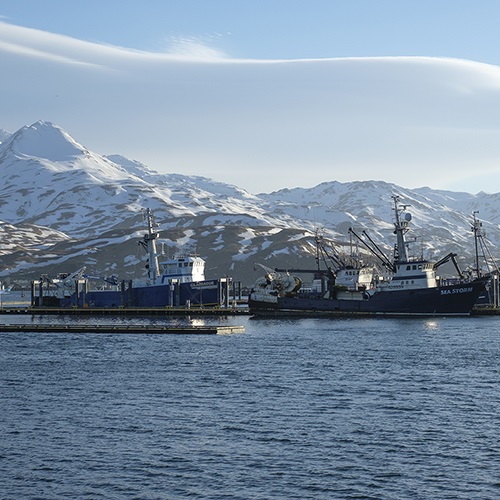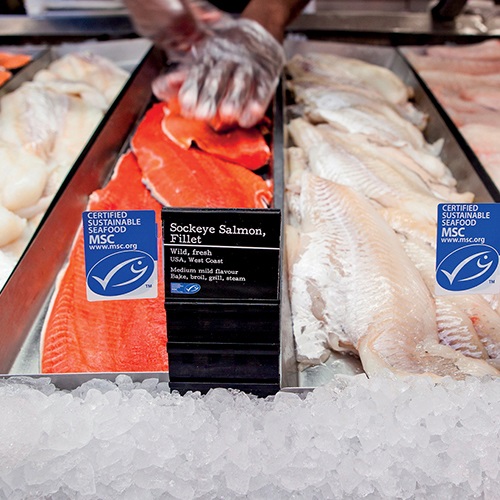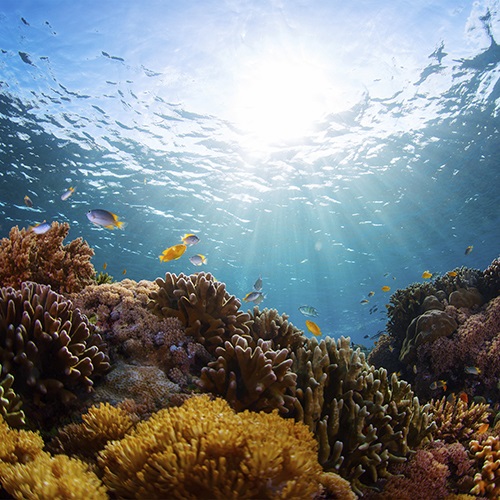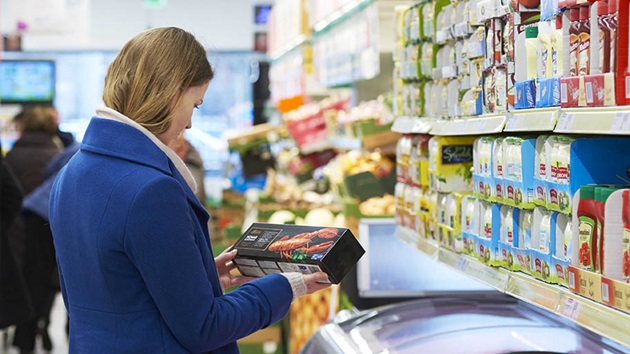It’s vital that everyone, from fishers to retailers, scientists to consumers, has confidence in the blue MSC label.
The MSC is the only global wild-capture fisheries certification program that simultaneously meets best practice requirements set by the UN Food and Agriculture Organisation and has been independently evaluated against ISEAL’s Codes of Good Practice.
Ensuring confidence
We have multiple checks in place so you can have confidence in the MSC label. These safeguards make up what we call the MSC assurance system. This system is used to make sure the assessment and certification of fisheries and supply chain businesses is working and meets best global practice.
Best practice in fishery assessments
Under the MSC program, fisheries can get certified if they meet the MSC Fisheries Standard.
Independent certification
The MSC is a third-party certification program. This means we do not assess or certify fisheries, but only set the standard they have to meet.
Fishery assessments are carried out by independent accredited conformity assessment bodies (CABs) with teams of experts in fisheries science and management who are independent of the fishery and the MSC.
What is a third-party program?
Third-party programs offer the highest level of assurance that the outcomes of assessments are unbiased. The MSC, in consultation with stakeholders, sets standards for sustainable fisheries and supply chains. The assessments are carried out by the independent assessors following processes that are set by the MSC.
Here’s how our program compares to other forms of certification:
- Third-party program: an independent assessment shows that the organisation’s product or service meets a standard.
- Second-party program: peers, such as an industry association or a buyer, check if the organisation’s product or service has met a standard.
- First-party program: an organisation self-assesses if its product or service meets a standard.
The MSC receives no money for assessments or certifications.
How we meet best practice
Additional safeguards
Third-party certification is widely regarded as the most trustworthy system for objective assessments, but there can still be risks to the integrity of any system. These can include real or perceived conflicts of interest.
To mitigate these risks, we have built in additional safeguards, including:
- Appointing Assurance Services International (ASI)as an external oversight body for conformity assessment bodies.
- Ensuring CABs follow ISO 17065, an international Standard used in many sectors including food safety, to ensure that assessment teams operate in a competent, consistent and impartial manner.
- Providing mandatory online training and relevant qualification requirements for assessors.
- Publishing assessment reports on our Track a Fishery website.
- Including independent peer review to check the expert judgement within fishery assessments. Find out more about the MSC Peer Review College and review process
There are many opportunities for stakeholders to contribute to a fishery assessment. Stakeholder input makes sure that assessments are balanced and reflect all available information.
To facilitate stakeholder involvement, a fishery assessment against the MSC Fisheries Standard includes:
- an early announcement of assessments to give stakeholders time to participate
- mandatory opportunities for stakeholder input to assessments
- a stage where CABs are required to actively seek out, consider and respond to stakeholder input
- a requirement that every stage in an individual fishery assessment process is made public on the MSC Track a Fishery website.
- an objection and complaints procedure so stakeholders who have an issue with the way an assessment has been carried out can raise official objections or complaints.
For a fishery to become certified, the assessment team reviews all the evidence received during the assessment process.
This includes evidence from the fishery, a site visit with staff interviews, input from stakeholders (both during the site visit and submitted in writing) and independent scientific input including from peer reviewers.
Qualified assessors
The individuals on an assessment team might have different skills to ensure they are qualified for conducting the assessment. The MSC requires that the following criteria are met:
- Assessors must complete extensive online training
- Assessors must have at least three years’ experience in the fisheries sector and a relevant degree
- The assessment team leader must be a qualified auditor or pass training on how to audit.
CABs also have their own assurance systems in place. For example, assessors must submit their reports to the CAB for further review. A second qualified person within the CAB takes the final decision on whether to certify a fishery.
Best practice in assuring seafood supply chains
All companies that buy and sell certified seafood comply with the MSC Chain of Custody Standard. Like
fisheries, these companies are certified by an independent third-party assessor.
This means all seafood sold with the MSC blue fish label has come from a certified sustainable source. We regularly monitor MSC labelled products for
integrity, testing samples, and run investigations that trace products back through the supply chain. Unannounced audits of certificate holders are built into our program.
Our Chain of Custody Standard set us apart from other sustainable seafood initiatives, such as ratings cards. The MSC outperforms all other wild-capture fisheries
certification programs recognised by the Global Sustainable Seafood Initiative (GSSI).
“Certification provides the highest level of assurance that the product is independently verified to be sustainable, is harvested legally and traceable back to another certified business.”
Certification and Ratings Collaboration
Compliance with external bodies
We go to great lengths to ensure we meet the highest international benchmarks for credible certification and ecolabeling.
The MSC Fisheries Standard is based in part on the UN FAO Code of Conduct for Responsible Fishing. The Code provides principles and standards for the conservation, management and development of fisheries around the world.
The MSC's certification and labelling program is fully consistent with the UN FAO's internationally-agreed set of principles for ecolabelling of wild caught seafood. These include:
- objective, third-party fishery assessment using scientific evidence
- transparent processes with built-in stakeholder consultation and objection procedures
- a standard based on the three principles - sustainability of target species, ecosystems and management practices.
The MSC is recognised by the Global Sustainable Seafood Initiative (GSSI), an independent benchmark for the credibility of sustainable seafood certification programs. GSSI was developed by a coalition of environmental NGOs, global businesses, industry experts, governments and intergovernmental organisations and is based on UN FAO codes and guidelines.
The MSC program meets all the essential components of the GSSI benchmark, and a further 63 supplementary components relating to issues such as deep sea fishing and vulnerable marine ecosystems.
The MSC is ISEAL Code Compliant. Our system has been independently evaluated against ISEAL’s Codes of Good Practice - a globally-recognised framework for effective, credible sustainability systems.
More information at isealalliance.org
For 70 years, the International Organization for Standardization (ISO) has published standards for companies and certifiers globally. Over 1 million companies are certified to ISO standards including the standard for quality management (ISO 9001).
The following ISO standards are built into the MSC’s assurance system. They define controls on conflict of interest, complaint resolution and accrediting a CAB.
- ISO 17011 - Accreditation
- ISO 17065 - Certification
- ISO 19011 – Auditing
The World Trade Organization (WTO) Technical Barriers to Trade Agreement exists to ensure standards and regulations do not create unnecessary obstacles to trade. ISEAL has sought a legal opinion from the Centre for International Environmental Law (CIEL) which confirms that all organisations consistent with the ISEAL Code of Good Practice, are not technical barriers to trade.
The EU Empowering Consumers Directive
Additional recognition of best practice
In addition to meeting international guidelines and Standards for best practice, our program is well regarded by numerous international organisations who scrutinise the role of standard setting in safeguarding our oceans.
Global leaders in ocean sustainability
The UN recognises the MSC as a major ocean stakeholder, and we directly contribute to the work of UN bodies such as the FAO (Food and Agriculture Organization).
Data from the MSC is used by the UN Environment Programme and other intergovernmental organisations to track progress towards international goals to end overfishing and protect biodiversity, including the UN Convention on Biodiversity’s Aichi Targets.
We also have a key role to play in helping companies and governments achieve the United Nations Environment Programme’s Sustainable Development Goals by providing best practice guidance for 'what good looks like' in a specific industry.
Maintaining best practice
Just as we develop our Standards in accordance with the latest scientific understanding, we periodically review our assurance system to increase its effectiveness and address real or perceived issues within the system.
More about the MSC

What is the MSC?
The Marine Stewardship Council is an international non-profit organisation. We recognise and reward efforts to protect oceans and safeguard seafood supplies.

Is seafood with the MSC label really sustainable?
You can trust that seafood with the blue MSC label was caught by a responsible fishery in a sustainable way.

The MSC and the UN Sustainable Development Goals
Data from the MSC is used by the UN Environment Programme to track progress towards international goals to end overfishing and protect biodiversity.

